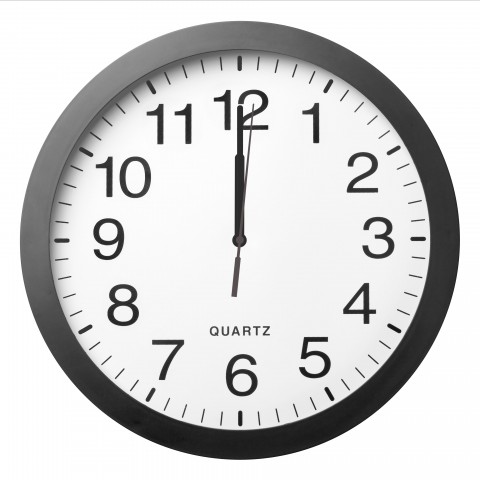Time is an important part of our life. Thus, it makes sense for Thai learners to learn how to ask for and give the time in Thai. Knowing Thai time phrases enables you to plan your schedule, make appointments, and better understand Thai conversations.
Telling Thai time is pretty different from doing so in English. Most of the words and phrases we’re going to look at aren’t difficult to understand, but you will need some time to get used to using them. For example, you don’t have to worry about remembering a.m. or p.m. in Thai because there is none. And we can also assure you that the way Thai people tell time is pretty straightforward, so it’s not hard to remember.
In this lesson, we’ll teach you basic time-related vocabulary such as the hours, minutes, and seconds in Thai. You’ll also get to learn various ways of telling the time in the Thai language, grouped into formal and informal ways for easier understanding. Of course, you’ll get to see and practice with many examples. Moreover, this lesson also provides you with a list of adverbs of time in Thai for more fluent speech, as well as time-related proverbs.
So let’s get started!
 Table of Contents
Table of Contents
- Time-Related Vocabulary in Thailand
- Formal Way to Tell Time in Thai
- Informal Way to Tell Time in Thai
- Time Adverbs in Thai
- Time-Related Proverbs and Sayings in Thai
- Conclusion
1. Time-Related Vocabulary in Thailand

Before learning how to tell time in Thailand, there’s some vocabulary to get out of the way first. Here’s a list of words you should know.
1- Time
Thai word: เวลา (wee-laa)
Example:
จะเริ่มประชุมเวลากี่โมง
Jà rôoem bprà-chum wee-laa gìi moong
“What time will the meeting start?”
2- Day time
Thai word: กลางวัน (glaang-wan)
Example:
ตอนกลางวัน ข้างนอกร้อนมาก
Dtaawn glaang-wan khâang nâawk ráawn mâak
“In the day time, it is very hot outside.”
Additional note:
There are three words that are often followed by กลางวัน (glaang-wan), listed below. The meaning of กลางวัน (glaang-wan) and these three words are pretty similar, so they can be used interchangeably.
- เวลากลางวัน (wee-laa glaang-wan)
- ตอนกลางวัน (dtaawn glaang-wan)
- ช่วงกลางวัน (chûuang glaang-wan)
3- Night time
Thai word: กลางคืน (glaang-khuuen)
Example:
อย่าออกไปข้างนอกเวลากลางคืนคนเดียว ไม่ปลอดภัย
Yàa àawk bpai khâang nâawk wee-laa glaang-khuuen khon-diiao mâi bplàawt-phai
“Don’t go out alone at night time, it is not safe.”
Additional note:
There are three words that are often followed by กลางคืน (glaang-khuuen), listed below. The meaning of กลางคืน (glaang-khuuen) and these three words are pretty similar, so they can be used interchangeably.
- เวลากลางคืน (wee-laa glaang-khuuen)
- ตอนกลางคืน (dtaawn glaang-khuuen)
- ช่วงกลางคืน (chûuang glaang-khuuen)
4- O’clock
Thai word: นาฬิกา (naa-lí-gaa); โมง (moong)
Example 1:
เมื่อวานนี้ นายกรัฐมนตรีเดินทางไปประเทศญี่ปุ่นตอนเวลา 10 นาฬิกา
Mûuea-waan-níi naa-yók rát-thà-mon-dtrii dooen-thaang bpai bprà-thêet yîi-bpùn dtaawn wee-laa sìp naa-lí-gaa
“Yesterday, the prime minister went to Japan at 10 o’clock.”
Example 2:
เธอจะถึงตอน 4 โมง
Thooe jà thǔeng dtaawn sìi moong
“She will arrive at 4 o’clock.”
Additional note:
There are two points you need to know about the words for “o’clock” in Thai.
One is the difference between นาฬิกา (naa-lí-gaa) and โมง (moong). นาฬิกา (naa-lí-gaa) is used in formal conversations, while โมง (moong) is used in informal conversations.
Another point you should know is that นาฬิกา (naa-lí-gaa) can also mean “clock” or “watch” in the Thai language.
5- Hour
Thai word: ชั่วโมง (chûua-moong)
Example:
1 ชั่วโมงในภาษาไทยคืออะไร
Nùeng chûua-moong nai phaa-sǎa thai khuue à-rai
“What is 1 hour in the Thai language?”
6- Minute
Thai word: นาที (naa-thii)
Example:
ขอเวลาอีกไม่กี่นาที
Khǎaw wee-laa ìik mâi gìi naa-thii
“I want a few more minutes.”
7- Second
Thai word: วินาที (wí-naa-thii)
Example:
1 นาทีมี 60 วินาที
Nùeng naa-thii mii hòk-sìp wí-naa-thii
“There are 60 seconds in 1 minute.”
Additional note:
In casual communication, Thai people often shorten the word วินาที (wí-naa-thii) to วิ (wí).
8. Clock
Thai word: นาฬิกา (naa-lí-gaa)
Example:
นาฬิกาของเธอสวยจัง
Naa-lí-gaa khǎawng thooe sǔuai jang
“Your clock is so beautiful.”
Additional note:
As mentioned above, นาฬิกา (naa-lí-gaa) has many meanings in the Thai language. It can mean “o’clock” or “watch.”
9. Watch
Thai word: นาฬิกาข้อมือ (naa-lí-gaa khâaw muue)
Example:
นาฬิกาข้อมือของเธอนั้นราคาเท่าไหร่
Naa-lí-gaa khâaw muue khǎawng thooe raa-khaa thâo-rǎi
“How much is your watch?”
Additional note:
นาฬิกาข้อมือ (naa-lí-gaa khâaw muue) is the combination of two words: นาฬิกา (naa-lí-gaa) which means “clock” and ข้อมือ (khâaw muue) which is “wrist” in Thai. Combined, the word refers to a clock on your wrist, which is a “watch.”
As mentioned above, you can also use the word นาฬิกา (naa-lí-gaa) to refer to a “watch” in the Thai language. However, comparing the two words, นาฬิกาข้อมือ (naa-lí-gaa khâaw muue) conveys a more specific meaning.
2. Formal Way to Tell Time in Thai

In the Thai time system, there are two main ways of telling time: a formal way and an informal way. We’ll start with the formal way first. Thai people rarely use this in daily conversation, and you’re much more likely to hear this in the news or an announcement.
The basic thing you need to know about the Thai clock is that Thai people use the twenty-four-hour clock in formal situations. Fortunately, this part is pretty easy.
1- Formal Way to Tell Time in Thai – Full Version
Below is the pattern you need to remember. You may recognize these words from the vocabulary section above.
….. นาฬิกา + ….. นาที
….. naa-lí-gaa + ….. naa-thii
….. o’clock + ….. minute
To tell the time, all you need to do is put the number in front of the unit. Just remember that Thai people use the twenty-four-hour format in formal situations. So from 1 p.m. to 12 a.m., don’t forget to change the number of the hour to 13-24 instead. For example:
- 3 a.m. in Thai is 3 นาฬิกา (sǎam naa-lí-gaa).
- 4 p.m. in Thai is 16 นาฬิกา (sìp-hòk naa-lí-gaa).
- 10:26 a.m. in Thai is 10 นาฬิกา 26 นาที (sìp naa-lí-gaa yîi-sìp-hòk naa-thii).
- 11:58 p.m. in Thai is 23 นาฬิกา 58 นาที (yîi-sìp-sǎam naa-lí-gaa hâa-sìp-bpàaet naa-thii).

2- Formal Way to Tell Time in Thai – Short Version
XX:YY น.
Thai people only use this shortened version in writing. You have to remember the pattern above. XX is the hour and YY is the minutes, so just put the numbers for the hour and minute where they belong. For example:
- 3 a.m. or 3 นาฬิกา (sǎam naa-lí-gaa) is 3:00 น.
- 4 p.m. or 16 นาฬิกา (sìp-hòk naa-lí-gaa) is 16:00 น.
- 10:26 a.m. or 10 นาฬิกา 26 นาที (sìp naa-lí-gaa yîi-sìp-hòk naa-thii) is 10:26 น.
- 11:58 p.m. or 23 นาฬิกา 58 นาที (yîi-sìp-sǎam naa-lí-gaa hâa-sìp-bpàaet naa-thii) is 23:58 น.
3- Common Formal Time-Related Sentences and Phrases
Now, let’s practice some sentences and phrases for telling time in Thai in formal situations.
What time is it?
- ขณะนี้เวลาเท่าไหร่
- Khà-nà-níi wee-laa thâo-rài

The current time is …..
- ขณะนี้เวลา ….. นาฬิกา ….. นาที
- Khà-nà-níi wee-laa ….. naa-lí-ga ….. naa-thii
What time is the …..?
- ….. เวลาอะไร
- ….. wee-laa à-rai
Example:
ประชุมเวลาอะไร
Bprà-chum wee-laa à-rai
“What time is the meeting?”
The time for XXX is ….. o’clock ….. minute.
- XXX เวลา ….. นาฬิกา ….. นาที
- XXX wee-laa ….. naa-lí-gaa ….. naa-thii
Example:
ประชุมเวลา 10 นาฬิกา
Bprà-chum wee-laa sìp naa-lí-gaa
“The time for the meeting is 10 o’clock.”
3. Informal Way to Tell Time in Thai
You’ve already learned the formal way to tell the time. Now, let’s learn the informal way. Thai people use this a lot in daily communication, both for speaking and writing.
The first thing you need to know is the main difference between the formal and informal ways to tell time in Thai. For the formal way, Thai people use the twenty-four-hour clock; for the informal way, Thai people use the twelve-hour clock.
When Thai people tell time informally, they either give you the number specifically or tell you the general period of time. We’ll explain both below, respectively.
1- Informal Way to Say ….. O’clock in Thai
This is more difficult than the formal way of telling the time. Since the way you tell time is different for each period of the day, you have a bit to remember. For easy understanding, we’ve summarized what you need to remember in the table below.
| Time | Thai word | Thai word | Example |
|---|---|---|---|
| 1-5 a.m. | 1-5 a.m. | dtii….. | ตีสาม (dtii sǎam) is “3 a.m.” in Thai. |
| 6-11 a.m. | ….. โมงเช้า | ….. moong cháo | 7 โมงเช้า (jèt moong cháo) is “7 a.m.” in Thai. |
| 12 p.m. | เที่ยงวัน | thîiang wan | – |
| 1-5 p.m. | บ่าย ….. โมง | bàai ….. moong | บ่ายสี่โมง (bàai sìi moong) is “4 p.m.” in Thai. |
| 6 p.m. | หกโมงเย็น | hòk moong yen | – |
| The informal way of telling time from 7-11 p.m. is special. The way to say this is …ทุ่ม (…thûm). However, instead of saying the number on the clock, Thai people start counting 7 as 1, 8 as 2, and so on. | |||
| 7 p.m. | 1 ทุ่ม | nùeng thûm | – |
| 8 p.m. | 2 ทุ่ม | sǎawng thûm | – |
| 9 p.m. | 3 ทุ่ม | sǎam thûm | – |
| 10 p.m. | 4 ทุ่ม | sìi thûm | – |
| 11 p.m. | 5 ทุ่ม | hâa thûm | – |
| 12 a.m. | 6 ทุ่ม | thîiang-kuuen | – |
2- Informal Way to Give the Minutes in Thai
The informal way of giving someone the hour is quite hard as there’s a lot to remember. However, that’s probably the most difficult part of this lesson and you’ve already passed it. Another bit of good news is that the minute part is pretty easy. There are only three points you have to remember.
0 minute in Thai
Thai word: ตรง (dtrong)
How to use: In English, if it’s XX:00 a.m. or XX:00 p.m., such as 3 p.m. sharp, you ignore the minute part. However, Thai people put the word ตรง (dtrong) after the o’clock time.
Example:
ตอนนี้เวลา 9 โมงตรง
dtaawn-níi wee-laa gâo moong dtrong
“It is 9 a.m. now.”
30 minutes in Thai
Thai word: ครึ่ง (khrûeng)
How to use:
There are two ways to use this word in Thai.
The first is to just put ครึ่ง (khrûeng) after the o’clock time.
The second is, if you want to say thirty minutes as a period of time, you use ครึ่งชั่วโมง (khrûeng chûua-moong), which means “half an hour” in Thai.
Example 1:
เจอกันตอนสองทุ่มครึ่งนะ
Jooe gan dtaawn nùeng thûm khrûeng ná
“I will meet you at 7:30 p.m.”
Example 2:
แม่ใช้เวลาทำซุปครึ่งชั่วโมง
Mâae chái wee-laa tham súp khrûeng chûua-moong
“Mom spent thirty minutes cooking soup.”
….. minutes in Thai
Thai word: XX นาที (naa-thii)
How to use: Now that we’ve covered the 0-minute and 30-minute rules, the rest is very easy. It’s the same as the formal way to tell the time. You just put the number followed by นาที (naa-thii).
Example:
หนังจะเริ่มตอน 10 โมง 15 นาที
Nǎng jà rôoem dtaawn sìp moong sìp-hâa naa-thii
“The movie will start at 10:15 a.m.”
3- Informal Way to Tell the Time Period in Thai
Now that you can tell the time, let’s learn the name of each time period Thai people use in daily life. Thai people use ตอน (dtaawn) followed by the names of each period, except midnight.
Morning (6-9 a.m.)
Thai word: ตอนเช้า (dtaawn-cháo)
Example:
ตอนเช้าแถวนี้รถติดมาก
Dtaawn-cháo thǎaeo níi rót thìt mâak
“In the morning, the traffic is very bad around here.”

Morning (9-12 a.m.)
Thai word: ตอนสาย (dtaawn-sǎai)
Example:
พ่อออกกำลังกายตอนสาย ๆ ทุกวัน
Phâaw àawk-gam-lang-gaai dtaawn-sǎai-sǎai thúk wan
“Dad exercises every day in the morning.”
Noon (12 p.m.)
Thai word: ตอนเที่ยง (dtaawn-thîiang)
Example:
ตอนเที่ยงอากาศข้างนอกร้อนมาก
Dtaawn-thîiang aa-gàat khâang nâawk ráawn mâak
“The weather outside is very hot at noon.”
Afternoon (1-3 p.m.)
Thai word: ตอนบ่าย (dtaawn-bàai)
Example:
ตอนบ่ายวันพรุ่งนี้ ฉันมีประชุม
Dtaawn-bàai wan phrûng-níi chǎn mii bprà-chum
“I have a meeting tomorrow afternoon.”
Afternoon (3-6 p.m.)
Thai word: ตอนเย็น (dtaawn-yen)
Example:
ร้านอาหารแถวบ้านคิวยาวมากตอนเย็น
ráan aa-hǎan thǎaeo bâan khiu yaao mâak dtaawn-yen
“The queue of restaurants near my home is very long in the evening.”
Evening (6-9 p.m.)
Thai word: ตอนค่ำ (dtaawn-khâm)
Example:
น้องกลับถึงบ้านตอนค่ำเพราะรถติด
Náawng glàp thǔng bâan dtaawn-khâm phráw rót dtìt
“My sister came back home in the evening because of a traffic jam.”
Night (9-12 p.m.)
Thai word: ตอนดึก (dtaawn-dùek)
Example:
เธอตื่นสายเพราะมัวแต่เล่นเกมส์ตอนดึกเมื่อคืน
thooe dtùuen sǎai phráw muua dtàae lèn geem dtaawn-dùek mûuea-khuuen
“She woke up late because she played a game last night.”
Midnight (12 a.m.)
Thai word: เที่ยงคืน (thîiang-khuuen)
Example:
เที่ยงคืนแล้ว ยังนอนไม่หลับเลย
Thîiang-khuuen láaeo yang naawn mâi làp looei
“I still can’t sleep despite it being midnight.”

4- Common Informal Time-Related Sentences and Phrases
Now that you know how to informally tell the time in Thai, you should practice some time-related sentences and phrases to use in real life!
What time is it?
- ตอนนี่กี่โมงแล้ว
- Dtaawn-níi gìi moong láaeo
The current time is …..
- ตอนนี้เวลา …..
- Dtaawn-níi wee-laa …..
What time is the …..?
- ….. ตอนกี่โมง
- ….. dtaawn gìi moong
Example:
กินข้าวเย็นตอนกี่โมง
gin kâao yen dtaawn gìi moong
“What time is dinner?”
The time for XXX is YYY.
- XXX ตอน YYY
- XXX dtawwn YYY
Example:
กินข้าวเย็นตอน 6 โมงครึ่ง
Gin khâao yen dtaawn hòk moong khrûeng
“The time for dinner is at 6:30 p.m.”
4. Time Adverbs in Thai
Now that you know how to tell time in Thai, it’s useful to know some time adverbs as well. They will enable you to include more detail and speak more like a native when telling the time in Thai. Here’s a list of time adverbs you should know:
1- Right now
Thai word: ตอนนี้ (thaawn-níi); เดี๋ยวนี้ (dǐiao-níi)
Example 1:
เธอต้องทำตอนนี้เลย
Thooe dtâawng tham dtaawn-níi looei
“You have to do it right now.”
Example 2:
ออกไปเดี๋ยวนี้เลย!!
Àawk bpai dǐiao-níi loei
“Get out right now!!”
Additional note:
ตอนนี้ (thaawn-níi) and เดี๋ยวนี้ (dǐiao-níi) are pretty much the same and can be used interchangeably. However, เดี๋ยวนี้ (dǐiao-níi) conveys a more immediate and urgent feeling.
2- Currently
Thai word: ปัจจุบันนี้ (bpàt-jù-baan níi)
Example:
ปัจจุบันนี้ โรงเรียนของเรามีนักเรียน 500 คน
Bpàt-jù-baan níi roong-riian khǎawng rao mii nák riian hâa-ráauy khon
“Currently, our school has 500 students.”
3- Before
Thai word: ก่อน (gàawn)
Example:
อย่าลืมล้างมือก่อนกินข้าว
Yàa luuem láang muue gàawn gin khâao
“Don’t forget to wash your hands before the meal.”
Additional note:
When using ก่อน (gàawn), the event that happens first is always in front of ก่อน (gàawn), while the event that happens later is put behind it.
4- After
Thai word: หลัง (lǎang)
Example:
หลังกินอาหาร ต้องทานยาทันที
Lǎang gin aa-hǎan dtâawng thaan yaa than-thii
“Take medicine immediately after meals.”
Additional note:
When using หลัง (lǎang), the event that happens later always follows หลัง (lǎang). But the event that happens first can be both in front of and after หลัง (lǎang).
5- Soon
Thai word: เร็ว ๆ นี้ (reo-reo-níi)
Example:
เจอกันเร็ว ๆ นี้
Jooe gan reo-reo-níi
“See you soon.”
6- Almost
Thai word: เกือบ (gùueap)
Example:
อาหารเกือบจะเสร็จแล้ว
Aa-hǎan gùueap jà sèt láaeo
“The food is almost done.”
7- In a while
Thai word: อีกสักครู่ (ìik sàk-khrûu)
Example:
งานจะจบในอีกสักครู่
Ngaan jà jòp nai ìik sàk-khrûu
“The event will end in a while.”
8- For a long time
Thai word: เป็นเวลานาน (bpen wee-laa naan)
Example:
เขาอาศัยอยู่ที่บ้านหลังนี้เป็นเวลานานแล้ว
Khǎo aa-sǎi yùu thîi bâan lǎang níi bpen wee-laa naan láaeo
“He has lived in his house for a long time.”
9- Anytime
Thai word: เมื่อไหร่ก็ได้ (mûuea-rài gâaw dâi); ตอนไหนก็ได้ (dtaawn-nǎi gâaw dâi)
Example 1:
เธอจะมาที่นี่เมื่อไหร่ก็ได้
Thooe jà ma thîi nîi mûuea-rài gâaw dâi
“You can come here anytime.”
Example 2:
พรุ่งนี้วันอาทิตย์ ฉันจะตื่นนอนตอนไหนก็ได้
Phrûng-níi wan-aa-thít chǎn jà dtùuen naawn dtaawn nǎi gâaw dâi
“Tomorrow is Sunday. I can wake up anytime.”
Additional note:
เมื่อไหร่ก็ได้ (mûuea-rài gâaw dâi) and ตอนไหนก็ได้ (dtaawn-nǎi gâaw dâi) are exactly the same and can substitute one another.
10- As soon as possible
Thai word: โดยเร็วที่สุด (dooi reo thîi sùt)
Example:
ฉันจะทำให้เสร็จโดยเร็วที่สุด
Chǎn jà tham hâi sèt dooi reo thîi sùt
“I will finish it as soon as possible.”
5. Time-Related Proverbs and Sayings in Thai
As you learn about Thai time, it’s a great idea to learn some proverbs and sayings about time in Thai. Below are five proverbs and sayings you should know!
1- ผัดวันประกันพรุ่ง
Thai pronunciation: phàt-wan-bprà-gan-prûng
Literal meaning: –
English meaning: Keep postponing the time
Explanation: This proverb is used to explain a situation in which something is being postponed many times over. For example, A promises to finish his homework on Saturday at first, but then he tells his mom that he’ll finish it on Sunday instead. When Sunday comes, he tells her that he’ll finish on Monday. ผัดวันประกันพรุ่ง (phàt-wan-bprà-gan-prûng) can explain A’s behavior well.
Example:
ทำให้เสร็จเลย อย่าผัดวันประกันพรุ่ง
Tham hâi sèt looei yàa phàt-wan-bprà-gan-phrûng
“Finish it now, don’t keep postponing the deadline.”
2- ไก่โห่
Thai pronunciation: gài-hòo
Literal meaning: Cock yells.
English meaning: Very early morning
Explanation: Since the cock often crows in the early morning, Thai people call the early morning time ไก่โห่ (gài-hòo).
Example:
วันนี้แม่ปลุกฉันตั้งแต่ไก่โห่
Wan-níi mâae bplùk chǎn dtâng dtàae gài-hòo
“Today, mom woke me up in the early morning.”

3- คาบเส้นยาแดง
Thai pronunciation: khâap sên yaa daaeng
Literal meaning: –
English meaning: Almost not finishing the task in time
Explanation: The Thai proverb คาบเส้นยาแดง (khâap sên yaa daaeng) is used to explain when someone nearly misses their deadline to do something.
Example:
เธอทำรายงานเสร็จแบบคาบเส้นยาแดงพอดีเลย
Thooe tham raai-ngaan sèt bàaep khâap sên yaa daaeng phaaw dii loeei
“She almost didn’t finish the report in time.”
4- เวลาเป็นเงินเป็นทอง
Thai pronunciation: wee-laa bpen ngen bpen thaawng
Literal meaning: Time is silver and gold.
English meaning: Time is valuable.
Explanation: This Thai saying is used to say that time is valuable. It’s often used in situations when you’re made to wait for no good reason or your time is being wasted.
Example:
ทำเร็ว ๆ หน่อย อย่าให้ต้องรอนาน เวลาเป็นเงินเป็นทอง
Tham reo-reo nàauy yàa hâi dtâawng raaw naan wee-laa bpen ngen bpen thaawng
“Quickly, don’t make me wait. My time is valuable.”
5- เวลาผ่านไปไวเหมือนโกหก
Thai pronunciation: wee-la phàan bpai wai mǔuean goo-hok
Literal meaning: Time passed quickly as if flying.
English meaning: Time flies.
Explanation: This Thai phrase is used to explain that time passes very quickly. Its meaning is exactly the same as “time flies” in English.
Example:
อีกไม่กี่วันลูกชายก็จะอายุ 20 ปีแล้ว เวลาผ่านไปไวเหมือนโกหก
Ìik mâi gìi wan lûuk chaai gâaw jà aa-yú yîi-sìp bpii láaeo wee-la phàan bpai wai mǔuean goo-hòk
“My son will be twenty years old in a few days. Time flies.”
6. Conclusion

What do you think about our Thai time lesson? Did you find it easy or difficult? How does time-telling in Thai compare to telling time in your own language? Please comment below to let us know.
In our opinion, some parts of this lesson are easy while others are a bit more complicated. However, with some practice, you can master it in no time. Try practicing this a lot with your peers or other Thai people you know. If you practice a lot, you’ll find everything you learned here a lot easier to remember.
And once you’re good with this lesson, don’t forget to check out other interesting and fun lessons at ThaiPod101.com, such as Songkran Festival, Noodle in the Boat, or Wat Phra Kaew. In addition to learning more about the Thai language, you’ll also get to learn about Thai culture and traditions!
Until next time, happy Thai learning!










